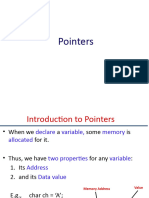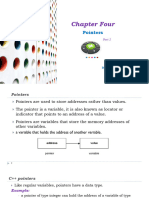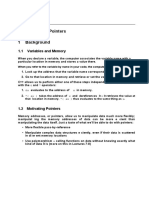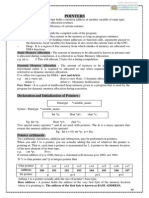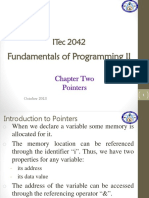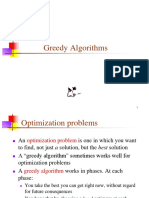0% found this document useful (0 votes)
5 views40 pagesLecture 09 - Pointers
The document provides an overview of pointers in C++, explaining their definition, usage, and operations such as dereferencing and memory management. It also discusses the differences between pointers and references, as well as the handling of strings in C++, including C-style strings and the C++ standard string class. Key examples illustrate how to declare and manipulate pointers, arrays, and strings effectively.
Uploaded by
Ahsan NadirCopyright
© © All Rights Reserved
We take content rights seriously. If you suspect this is your content, claim it here.
Available Formats
Download as PDF, TXT or read online on Scribd
0% found this document useful (0 votes)
5 views40 pagesLecture 09 - Pointers
The document provides an overview of pointers in C++, explaining their definition, usage, and operations such as dereferencing and memory management. It also discusses the differences between pointers and references, as well as the handling of strings in C++, including C-style strings and the C++ standard string class. Key examples illustrate how to declare and manipulate pointers, arrays, and strings effectively.
Uploaded by
Ahsan NadirCopyright
© © All Rights Reserved
We take content rights seriously. If you suspect this is your content, claim it here.
Available Formats
Download as PDF, TXT or read online on Scribd
/ 40
